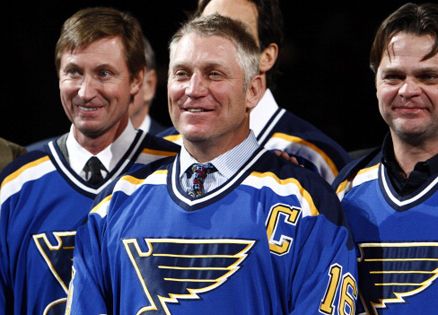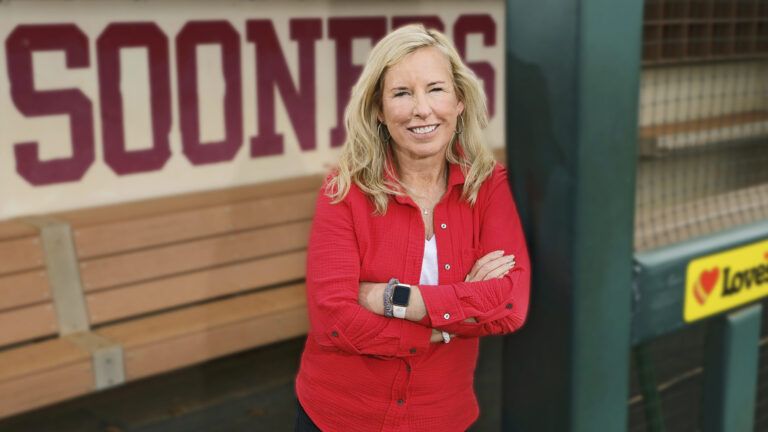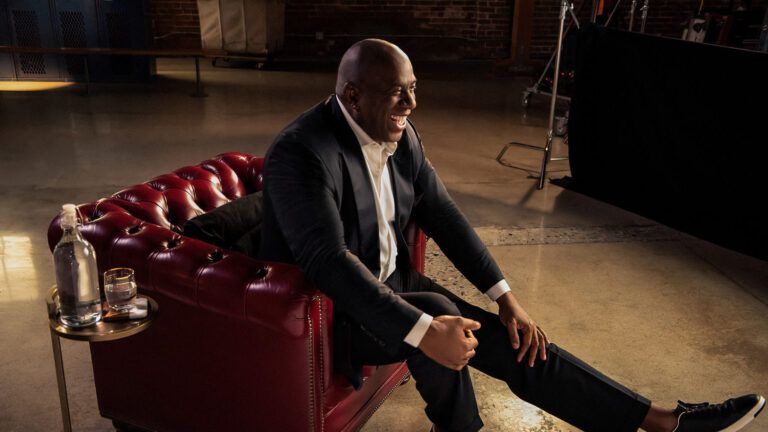It wasn’t easy growing up in the shadow of my dad, the legendary hockey star Bobby Hull. Sportswriters called him the greatest left wing of all time. Three times he won the Ross Trophy for the National Hockey League’s top scorer. He played on 12 All-Star teams, was awarded the Hart Trophy twice as most valuable player and in 1983 joined the NHL Hall of Fame.
But the one thing fans came to see and cheer for was his famous slap shot. I’ll never forget watching him deftly capture the puck and race up the ice, his blond hair streaming. He’d raise his hockey stick high over his shoulder, and with a mighty whack he’d whiz the puck past the overmatched goaltender.
That slap shot with its cannonball impact grabbed me and I began trying to copy it as a kid growing up in Vancouver, British Columbia. And though I had a lot going for me as the Golden Jet’s son, it brought taunts too. “Yeah, yeah,” jeered the other kids on the rink, “you’ll never be as good as your old man!”
Clenching my teeth I vowed to show them. If Dad could win games with his slap shot, so would I.
By high school my own slap shot was making goalies nervous. And while I attended the University of Minnesota at Duluth, that slap shot helped me become an NHL sixth-round draft choice in 1984. But I didn’t do as well as I’d hoped. By the end of my second season with the Calgary Flames, I had scored only 27 goals in 57 games. So I strove even harder to measure up to Dad, concentrating on that goal-scoring slap shot.
Dad and I kept up with each other, mostly on the telephone. He was always giving me advice about one thing or another, but I’d turn a deaf ear. After all, I was grown up now.
In 1988 I was traded to St. Louis, and in my first season I slammed in 41 goals. I was proud of that figure—although I wasn’t too happy about my own figure. I had always enjoyed rich foods and hearty living, and I had gained a lot of weight. But hey, with my slap shot and 41 goals, what more could anyone want?
I found out one May afternoon in 1989. It was at the end of the season when we St. Louis Blues players had our usual chats with Coach Brian Sutter before going our separate ways for the summer. I was feeling pretty good about myself, having made the All-Star team and leading the Blues to the play-offs.
On my way to Coach Sutter’s office under the St. Louis Arena I walked through the empty shadowy locker room and past our some 100 hockey sticks now silent in their racks. I glanced at mine and felt a thrill remembering those 41 goals.
I knocked on the door.
“Come in.”
Coach Sutter sat behind his desk flanked by assistant coaches Bob Berry and Joe Micheletti. He motioned to a chair: “Sit down, Hully.”
I plopped down, smiled at the men and settled back, awaiting compliments. Instead I got a shock.
Coach Sutter leaned forward. “We think you can do better.” The lanky man frowned at his desk, then looked up, his brown eyes boring into mine. “Sure, you scored 41 goals,” he said, “but we want you to do more than that.”
I edged back in my chair.
He rattled off ways in which I could improve my skills—in assists, defense and setting up plays. But the message that hung heavy on me was, You’re still not good enough.
I glanced quizzically at the assistant coaches. They looked as serious as Sutter. Emotions roiled within me. I knew the coaches were really trying to encourage me, but the “warm chat” was more like a cold shower. I walked out of the office with mixed emotions.
As I traveled up to Duluth, where I had been living, I tried to sort out my feelings. My ego was still smarting when I got home that night. I called Dad and told him what Coach Sutter had said. Instead of sympathy, though, I got, “I’ve been trying to tell you that for years.” He laughed.
I gripped the phone, staring at the wall.
“You know, Son,” he continued, “we all have our own ways of doing things. I’ve watched you on the ice. You’ve got to be more versatile, make the most of your own abilities, develop your own style.”
For the first time I realized what Dad had been trying to advise me to do: Quit trying to be another Bobby Hull.
I knew he was right; we were two different people on the ice. Dad was a fiery fighter and I was a laid-back kind of guy. I remembered something from Sunday school days about a man taking pride in his own work and not comparing himself to someone else.
“All right, Dad,” I sighed.
That summer I took a good look at myself. For one thing I realized I had to change my lifestyle. I needed to watch what I ate and drank. Instead of well-marbled red meat, I chose lean chicken, and instead of potatoes and gravy, I ordered plain rice. I exercised too, spending the off-season running, doing aerobics and skating. Most important, I worked hard practicing new moves on the ice, developing my wrist shot, for example, so that I’d be able to shoot the puck quickly in a tight situation.
When I reported back to the Blues training camp, I had lost some fat and gained some muscle; my weight was now distributed more effectively. Moreover, I had a new quickness that helped me to be right where I wanted to be on the ice.
It all came together on the night of February 6, 1990. We were in the St. Louis Arena fighting Toronto. I was one point shy of hitting that magical target of 50 goals in one season, and Dad, the old Hall of Famer, was up in one of the private boxes watching me. It was really nerve-racking, and it looked as if I wouldn’t be able to score. I wanted to do it so much for him. I tried and tried through the game, but nothing. Then in the final period I spotted my chance. In close quarters facing the Toronto goalie, Jeff Reese, I whipped a wrist shot by him—right into the net.
The arena exploded. I had made NHL history: I was the first son who had ever become a 50-goal scorer like his father. I looked up at Dad and I could see pride all over his face.
I was so pumped up I thought I’d explode too. Because I could tell what Dad was thinking: You did it, Son. And the best part is, you did it not like I’d have done it—you did it with your own style.






